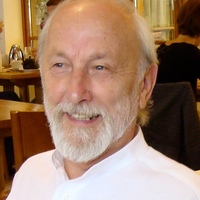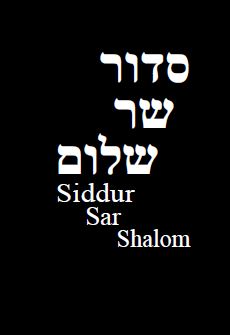Last year, scheduled just before the start of the Society of Biblical Literature‘s Annual Meeting in Boston, the Society for Post-Supersessionist Theology held its first meeting. You can read my summary here. On November 22 of this year, in San Diego, a second meeting was held with auspicious Pauline scholars on the theme of Fulfillment and Supersessionism in the Theology of St. Paul.
The purpose of this blog is to make accessible a simple summary of the meeting, and to construct an aide-memoire for myself.
The first presentation was by William S. Campbell, from the University of Wales, who spoke on fulfillment language in Paul’s writings. He noted that πληρωμα, a not-so-uncommon word, is only used once by Paul in terms of fulfilment, in Galatians. He referred also to τελος, with it emphasis on outcome, more than conclusion, or termination. He stated that “Paul speaks of Christians as the ratification of the Old Testament promises.” He further mentioned that in Romans 9-11 Paul does not use fulfilment language, as Matthew might do. This led to his statement that Paul’s is “not a fulfilment theology but rather a theology of confirmation.” The significance of all of this is that fulfilment language sometimes annuls, whereas confirmation language does not. The covenant can be ratified and renewed. The Covenant of God with Israel remains God’s covenant with Israel and only Israel. As he stated, “Israel is not a theological symbol. Israel is a historical people.” 
Not to be confusing, the second panelist was Douglas A. Campbell from Duke Divinity School. Another from the Campbell clan, laddie! His contribution was based on research written up in his new book Pauline Dogmatics: The Triumph of the Love of God. For him, the basic truth claim of Paul was “Jesus is Lord”. Early Christianity, he pointed out, was composed of Torah-observant Jews and Gentile pagans. Paul lived in a new eschatological reality, and he reminds his readers that we all live in it. There was a distinction for Paul between interpersonal and structural. We live in the age of the flesh, but are moving to glory. The very eschatological logic that resulted in Paul resisting the imposition of Judaism on Gentiles should warn us of the danger of imposing Gentile accommodations on Jews (inside, I applauded). Secondly, an apocalyptic account facilitates an understanding of Israel. Israel, for Paul, is above all the place where God moves to save the cosmos. For Campbell the apocalyptic Paul, properly understood (by which scholars typically mean “the way I understand”) is an emphatically non-sapiential Paul.
My dear Douglas Campbell. I think you lost me a bit. I’ll have to buy your book, it seems, if I wish to grasp all of what you were getting at.
Paula Fredriksen from Boston University responded. She did not disappoint and proved her razor sharp wit, perception and forthrightness. She challenged Douglas as to whether apocalyptic eschatology really speaks of the end of the world (it doesn’t). Her position is that “Paul doesn’t preach Christianity but eschatological Judaism for Gentiles.” She sees Messiah as a Davidic warrior, for Paul. She further bridled at the idea that Jewish observance (for Jews) is optional now that Messiah has come. She accepted that the “optional” approach of Douglas Campbell is better than Christian Anti-Judaism, but pointed out that Paul was a believer in circumcision with all the obligations that entailed. 
The last panelist was Francis Watson, from Durham University. He contended with the idea that supersessionism is the same thing as erasure, and argued for the radical transcendence of the Christ event. He then interacted with the other panelists. The olive tree analogy of Romans 11 came in for special attention, and William Campbell pointed out that the NRSV translation “in their place” in reference to the Gentile branches being grafted in (Rom 11:17), is a tendentious translation, and problematic. 
A LIVELY DEBATE
ensued, with considerable interaction between Paula Fredriksen and Douglas Campbell. It is too much to get into the details, and I hope that I have understood correctly, but the key issues were:
a) the election of Israel (for Campbell in the New Covenant Israel is a reconstituted continuity, and all Christians bear the image of a Jew – Jesus). This seemed problematic to Fredriksen – and I have to agree;
b) Fredriksen – in that case, what still needs to be done?
c) In a query to Fredriksen, what is πνευμα for Jews? Fredriksen asserted that there is a continued uniqueness in Jewish identity for Paul, who asserted to Peter (Gal 2:15) “we are not Gentile sinners”, asserting that Jews by nature are different. Jews do get the πνευμα, as Jews. This is what he means by “peace upon the Israel of God” (Gal 6:16) – he is talking to Jews who have the πνευμα.
d) a further argument was then, what about belief and unbelief? Doesn’t this have a distinguishing force for Paul? Francis Watson responded by pointing out that this is the source of Paul’s grief.
All in all, this was a profitable session. It both highlighted the progress that has been made in understanding Paul in non-supersessionist ways, and the distance still to be made up. There is much work to be done, much bad theology to be undone, and a great amount of disagreement on how all that is going to look. The participation of a significant number of Jewish scholars, largely but not exclusively Messianic Jews, points to the importance of this task for Jewish-Christian relations.
Filed under: antisemitism, Church | Tagged: Replacement Theology, SBL, Supersessionism, theology | 3 Comments »



